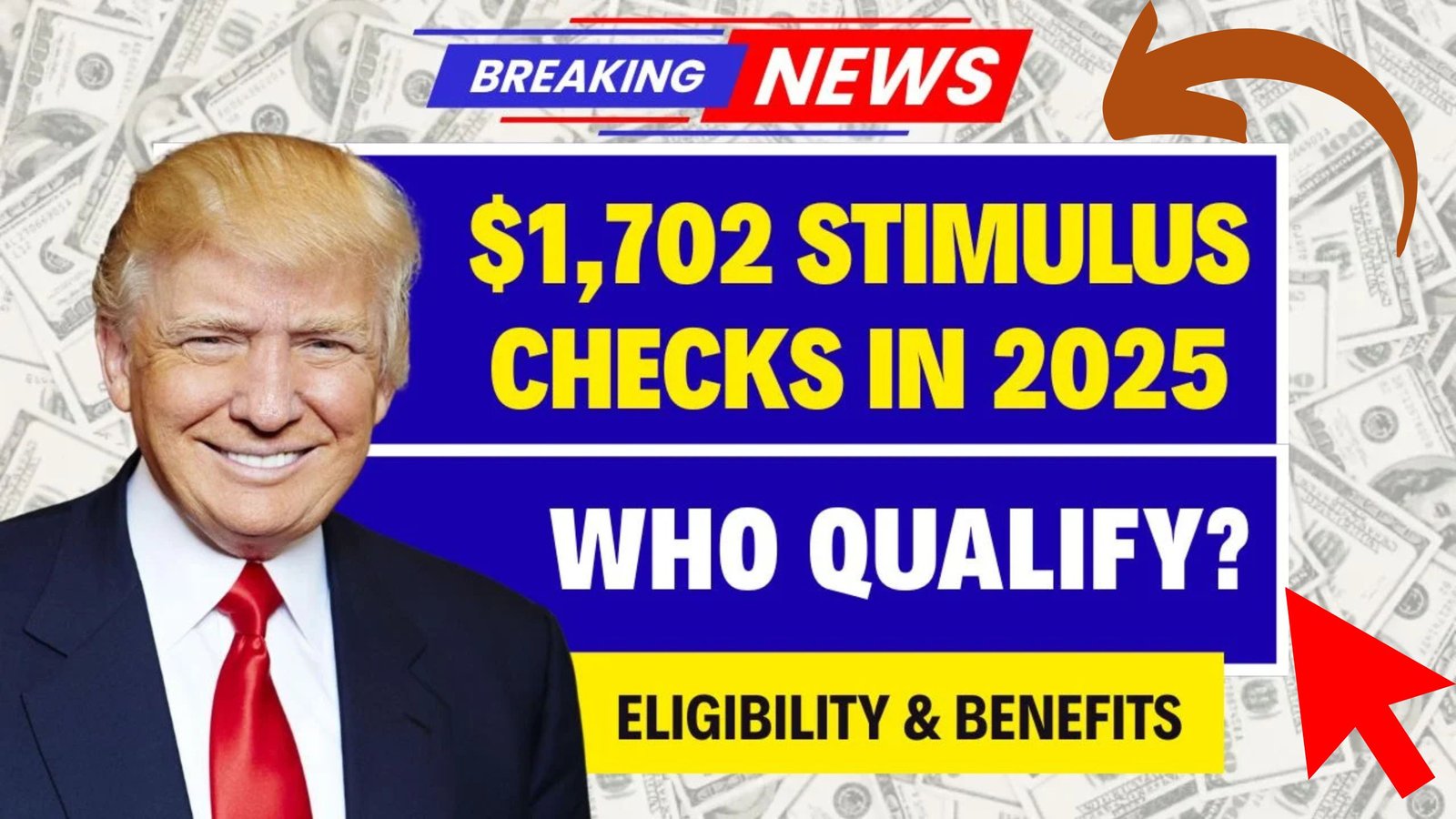$1702 Stimulus Checks 2025: the widely discussed $1,702 stimulus checks expected in 2025. Many Americans are wondering if they qualify and when the money will arrive. While not everyone will receive this payment, the program is one of the most substantial direct financial aid efforts in several states and is designed to support residents amid continued inflation and economic strain.
What Is the 2025 $1,702 Stimulus Check?
This section explains the nature of the payment. The $1,702 amount comes from state-administered stimulus efforts, not a nationwide federal stimulus like those in 2020–2021. States like Alaska are continuing or reviving direct aid programs to help residents cope with rising costs. It’s a fixed, one-time payment meant to offer short-term financial relief to qualifying individuals and families.
$1,702 Stimulus Check 2025 Overview
| Category | Details |
|---|---|
| Payment Amount | $1,702 |
| Issuing Body | Individual State Governments (not federal IRS) |
| Eligibility Criteria | State residency, filed taxes, income/other requirements |
| Application Needed? | No (in most states), based on tax records |
| Payment Timeline | August to October 2025 (varies by state) |
| Delivery Method | Direct deposit, check, or prepaid debit card |
| Applies to Seniors? | Yes, if state includes them in eligibility |
| State-Specific Rules? | Yes — must check with your state treasury or tax site |
Is This Stimulus Really for Everyone?
This heading questions the inclusivity of the program. Despite the hopeful messaging, the stimulus check is not truly universal. Eligibility depends on several factors, including residency, income level, and tax filing status. While the majority of permanent residents who meet all requirements may receive the full amount, others could be excluded due to missing documentation or legal issues.
Who Is Eligible for the $1,702 Payment?
This section breaks down eligibility. To receive the 2025 stimulus check, individuals generally must have resided in the participating state for the full calendar year prior and filed a state income tax return. Some programs target low- or middle-income residents, while others also include seniors, veterans, or individuals with disabilities. Each state may set slightly different criteria, so checking your local program’s rules is essential.
When Will the Checks Be Sent?
Here, we discuss the expected payment timeline. Most states will begin issuing payments between August and October 2025, although some might start earlier. The method of payment (direct deposit, mailed check, or debit card) will determine how quickly residents receive their funds. Payments may be released in stages based on factors like birthdate or filing order.
How Will You Receive the Payment?
This section explains the delivery methods. If you filed taxes and selected direct deposit, your payment will go directly into your bank account. Others may receive paper checks or debit cards via mail. You generally don’t need to apply separately, as states will use tax records and official databases to identify eligible recipients automatically.
Why Is This Stimulus Needed Now?
This heading explains the economic context. Despite the low unemployment rate, many Americans are still struggling with inflated grocery prices, rent, utilities, and healthcare. The $1,702 check offers a one-time financial cushion to ease those burdens—especially for those living paycheck to paycheck. Still, critics say it’s not a long-term solution to systemic affordability problems.
What to Watch for Moving Forward
This section looks ahead. As more states experiment with localized stimulus programs, others may follow suit. Some experts suggest that future economic challenges—such as continued inflation or rising housing costs—could lead to additional rounds of payments. Keeping an eye on official state announcements is key to staying informed.
Frequently Asked Questions ($1702 Stimulus Checks 2025)
Q1: Is this a federal stimulus check from the IRS?
No. The $1,702 payment is state-issued, not part of a national federal stimulus program.
Q2: Do I have to apply for this stimulus check?
In most states, no separate application is required. If you filed your state taxes and meet eligibility, your payment will be automatic.
Q3: Can seniors or disabled individuals qualify?
Yes. Many states include provisions for seniors, veterans, and those with disabilities.
Q4: What if I recently moved to the state?
If you haven’t met the residency requirement (usually a full year), you may not qualify in 2025.
Q5: What if I didn’t file taxes?
If your state requires tax filing for eligibility and you didn’t file, you may be disqualified or delayed. Some states may offer alternative forms.




